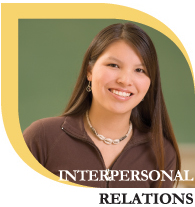Indigenous Centred Service Approach

Indigenous centred service approach is a desire to serve Indigenous peoples, focusing one's efforts on understanding their interests in order to increase the quality of the service and produce better outcomes. It implies a willingness to support Indigenous peoples in determining their own future. It involves demonstrating a welcoming demeanour, an attitude of helpful curiosity and a willingness to enter into the interaction or relationship without judgment or stereotyping. It means being open-minded and flexible in one's attitudes toward people who are different from oneself and showing respect for the differences. It includes experiencing Indigenous peoples as strong, vital and important to the functioning of British Columbia. Implicit in this is the knowledge that one is responsible for the image and effectiveness of the public service.
Demonstrates the Behaviour When
- Demonstrates availability, curiosity and willingness to address questions or concerns
- Provides respectful service that reflects an understanding of differences in culture and history (unique responses for unique customers)
- Hears customer issues and interests as legitimate and works diligently to resolve
- Seeks to first understand what the customer* values and then determines best process and direction
- Challenges oneself to objectivity and equality in service
- Takes ownership by following up or ensuring follow up by others
- Monitors satisfaction, formally and informally
- Demonstrates personal accountability in ensuring satisfactory resolution of the issue
- Says "no" when necessary and brainstorms alternatives with customer
- Empowers Indigenous people by shifting idea of the public service employee in power to an approach of equal partnering
- Serves as facilitator of Indigenous peoples defining their issues and interests and determining their solutions while providing resources to support
- Shows understanding that interactions with customers are part of an overall relationship between the public service and Indigenous peoples
- Seeks root causes of issues and works to address them for long term resolution
- Designs services, systems and policy that empower Indigenous peoples to conduct business in a way that works for them
- Designs self-service technology that demonstrates understanding of economic, social and cultural barriers to its availability and effective use
- Challenges processes that show they are not effective
- Notices and recognizes excellence in Indigenous-centred service delivery
- Provides specific feedback on areas of excellence and developmental opportunities
- Facilitates availability of learning opportunities for staff
- Puts customer interests at the heart of processes and addresses them in the overarching business strategy
* The reference to "customer" is specifically Indigenous customers and partners and is interchangeable with " Indigenous peoples."
Needs Development When
- Actions towards customers reflect attitude of blame or judgement for the problem or situation
- Does not seek to understand the needs of the population to be served
- Body language reflects avoiding or negative attitude towards customer
- Multitasks on non-related issues while working with customer
- Unwilling to look for alternative approaches to policy or operational barriers
- Jumps to resolution without fully engaging with the customer
- Works in a way that is easy and comfortable for the service provider rather than for Indigenous peoples
- Operates in a way that forces Indigenous peoples to adapt to organizational service practices and systems
- Uses role to exert power over customers
- Witnesses inappropriate or unfair service delivery and does not speak up
- Deals with interests and issues at face value without exploring the root cause
- Says "yes" to everything from the customer because it's easier or because of lack of understanding
- Awkward or avoiding in customer interactions
- Uses standard response in every situation because that's the job
- Does everything for the customer, perpetuating dependency
- Gives all responsibility to customers
- Deals with customer interactions as isolated incidents rather than part of an overall relationship between the public service and Indigenous peoples
- Focuses on meeting the needs or mandate of the public service or work unit to the exclusion of the customer
- Sees opportunity for improvement in operations and approaches but doesn't speak up
- Designs and implements self-service technologies that fit for the public service rather than the customer
- Builds strategic, operational or service delivery plans without full Indigenous customer engagement and responsiveness to cultural considerations
- Expects excellent employee service without providing learning and motivation
- Fails to model the standard
